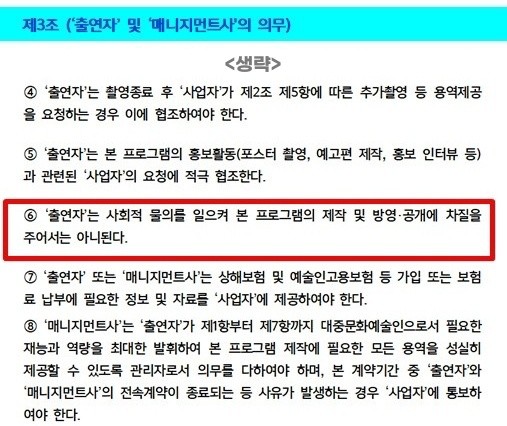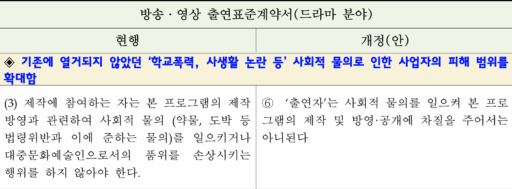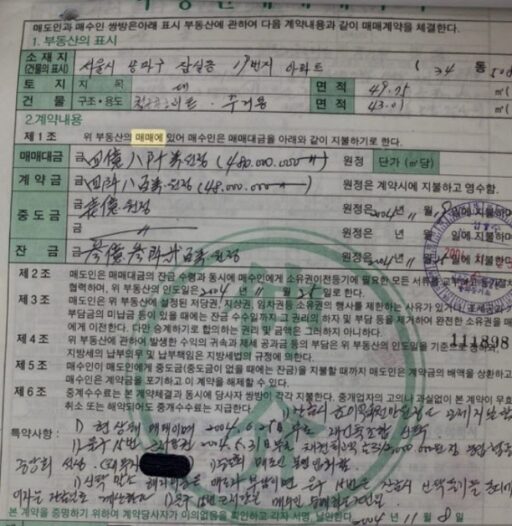
"The participants must not cause social controversies that hinder the production, airing, or disclosure of the program."
The Ministry of Culture, Sports and Tourism has fully revised the 'Standard Contract for Broadcast and Video Participants' for the first time in 12 years. The most notable item is the clause regarding the liability for damages caused by the participant's social controversies.
However, the term 'controversy' is giving rise to further confusion. The question arises: how far should the scope of ‘controversy’ be expanded? Previously, only issues equivalent to violations of laws such as drug use, gambling, and sexual violence were recognized as grounds for damages.
Through this revision, the Ministry has included 'school violence' and 'privacy issues' in the definition of social controversies. If the production and disclosure of video content are hindered due to such issues, the participant is now liable to compensate the production company for damages.
Nevertheless, there is widespread concern throughout the entertainment industry. Critics point out that this clause is overly broad. There is a growing counterargument questioning whether it is feasible to hold participants liable for damages based solely on the term ‘controversy’ before any fact-checking is conducted.
This concern is justified, as privacy controversies typically begin with a revelation, and it takes time to ascertain the truth. Furthermore, when there is only unilateral testimony from the whistleblower, it becomes difficult to verify the facts. False accusations of misconduct are one example of this.
An insider from the entertainment industry told 'Dispatch', "If a criminal wrongdoing is revealed, then liability for damages can be established. However, in cases of false exposure, it becomes a situation where the participant is the victim. This revision creates a contradiction where the victim is held liable for damages."
In fact, the revision from the Ministry excludes any right of defense for the participants. There are no provisions for recovering damages if the exposure is proven to be false. Holding participants liable for damages simply due to the occurrence of a controversy aligns more closely with the interests of the production companies.

A representative from the Ministry explained to 'Dispatch', "This revision does not have legal enforceability." They added that it is merely a guideline in the form of a standard contract, and contracts can be conducted autonomously.
The Ministry stated, "The standard contract is not a law. It is a guideline suggesting, 'We hope you consider this'." They further mentioned, "We have only presented a standard for the scope of damages, considering that the specifics may vary by situation."
They continued, "We considered how far these criteria should include based on the judgment that everyone should be protected," adding, "It does not have any coercive power. The obligation for compensation is something that should be comprehensively evaluated by the courts."
In the past, it is true that production companies or broadcasters have taken on a significant portion of the risks related to participant issues. There have been cases of program scheduling being withheld, filming being halted, and changes in casting. There is also a need to adjust the authority for compensation for the damages incurred by producers.
However, the criteria for damages should be governed by law. One should not shift responsibility onto participants or their agencies based on the vague term 'controversy'. False accusations can inflict fatal damage on participants as well.
Industry insiders point out, "Some production companies demand unreasonable compensation amounts without being able to prove the damages," emphasizing, "Before defining the scope of controversies, it is necessary to establish objective criteria for damages."
<Photo source: Ministry of Culture, Sports and Tourism>


